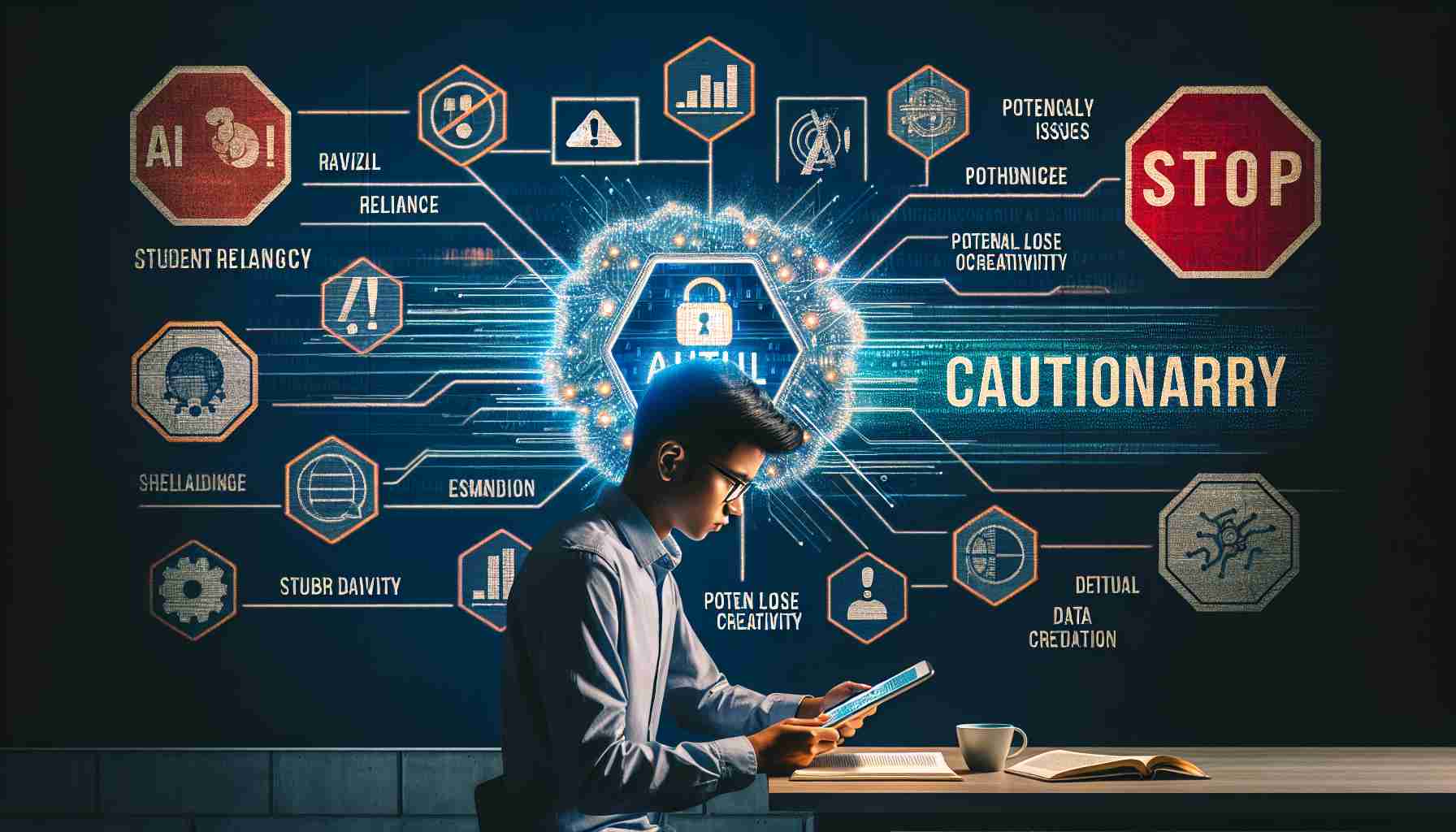Recent research suggests that while artificial intelligence (AI) tools like ChatGPT can assist in learning, they may foster an overconfidence in students regarding their knowledge. Researchers at the University of Pennsylvania (USA) conducted a study involving nearly 1000 high school students in Turkey to examine this phenomenon. The students participated in math classes and individually completed assessments outside of regular lessons.
The participants were divided into three groups: one studied independently, another utilized ChatGPT for help, and the last group received hints from a specialized version of ChatGPT. Over four instructional cycles, students tackled various problems, and results revealed that those using AI tools scored considerably higher on preliminary assessments. Specifically, the group that worked with AI hints demonstrated a striking 127% increase in correct responses compared to the independent learners.
However, a follow-up assessment conducted without AI support exposed a different reality. The students who had relied on AI methods actually underperformed, showing a 17% decline in correct answers relative to those who had studied independently. This highlighted a potential issue: students using AI often sought immediate answers instead of understanding the material, thus depriving themselves of critical problem-solving skills.
Additionally, the AI tools made several errors, which could lead to misconceptions. As a result, researchers cautioned that dependency on AI could hinder authentic learning experiences and create an illusion of competence, as students felt they had performed better than their actual results indicated. Further explorations into this area reveal significant implications for educational practices.
The Impact of AI on Student Learning: A Cautionary Study
As artificial intelligence (AI) technologies continue to integrate into the educational landscape, the implications for student learning remain a critical area of scrutiny. Beyond the notable findings from the University of Pennsylvania study, there are several additional facets to consider when examining the impact of AI on student learning, including its benefits and drawbacks.
Key Questions Surrounding AI in Education
1. How does AI influence student engagement and motivation?
– While AI tools can provide instant feedback and personalized learning paths, preliminary insights suggest that they may reduce intrinsic motivation by offering easy access to answers. Students might be less inclined to engage deeply with the material, as the incentive to struggle through complex problems diminishes.
2. Can AI improve learning outcomes for diverse learners?
– AI has the potential to cater to individual learning styles and paces, targeting students who might struggle in traditional educational environments. However, this raises the question of whether AI could inadvertently favor those already familiar with technology, thereby widening the gap between tech-savvy students and those with limited access or experience.
3. What is the role of teachers in an AI-enhanced classroom?
– The integration of AI tools into classrooms raises concerns about the teacher’s role. Teachers might be relegated to the position of facilitators rather than primary knowledge transmitters. This shift requires teachers to adapt their methods and find ways to leverage AI tools to enhance their teaching rather than relinquish authority to these machines.
Advantages of AI in Education
– Personalized Learning: AI can provide customized learning experiences, adapting resources and assessments according to individual student needs, which promotes a more engaging and effective learning environment.
– Immediate Feedback: AI tools offer students immediate responses to their inputs, allowing for rapid reinforcement of concepts. This can help students correct misunderstandings quickly, fostering a more dynamic learning process.
– Resource Accessibility: Students from various backgrounds can access high-quality materials and expert-level knowledge virtually, breaking down barriers that once limited educational resources.
Disadvantages of AI in Education
– Overreliance on Technology: As highlighted in the earlier study, students might become dependent on AI for answers, diminishing their critical thinking and problem-solving skills. This dependency could result in superficial learning.
– Equitable Access: Not all students have the same access to AI tools or the internet, potentially exacerbating existing educational inequalities.
– Quality of Information: AI systems are not infallible; their errors can reinforce misconceptions or provide inaccurate representations of knowledge, posing risks to students’ learning journeys.
Conclusion
AI’s promise in education is accompanied by significant challenges and ethical considerations that stakeholders must navigate. Balancing the benefits of personalized learning and immediate feedback against the dangers of complacency and inequity is crucial for implementing AI tools responsibly in educational contexts. Continuous research is essential to better understand the implications of AI on learning, ensuring that technology serves as an aid rather than a crutch.
For further information about the effects of AI in education, visit Education Corner.

















